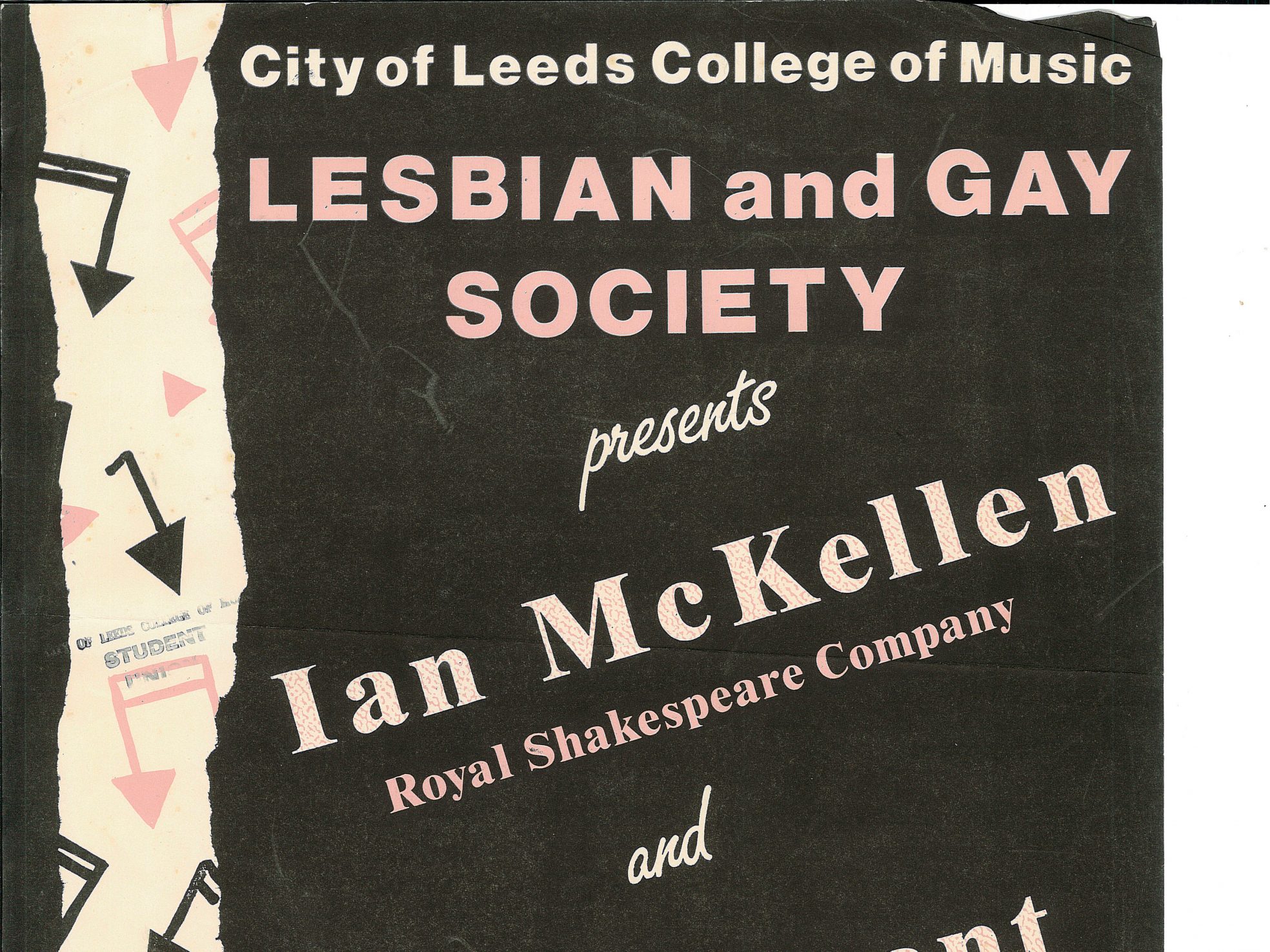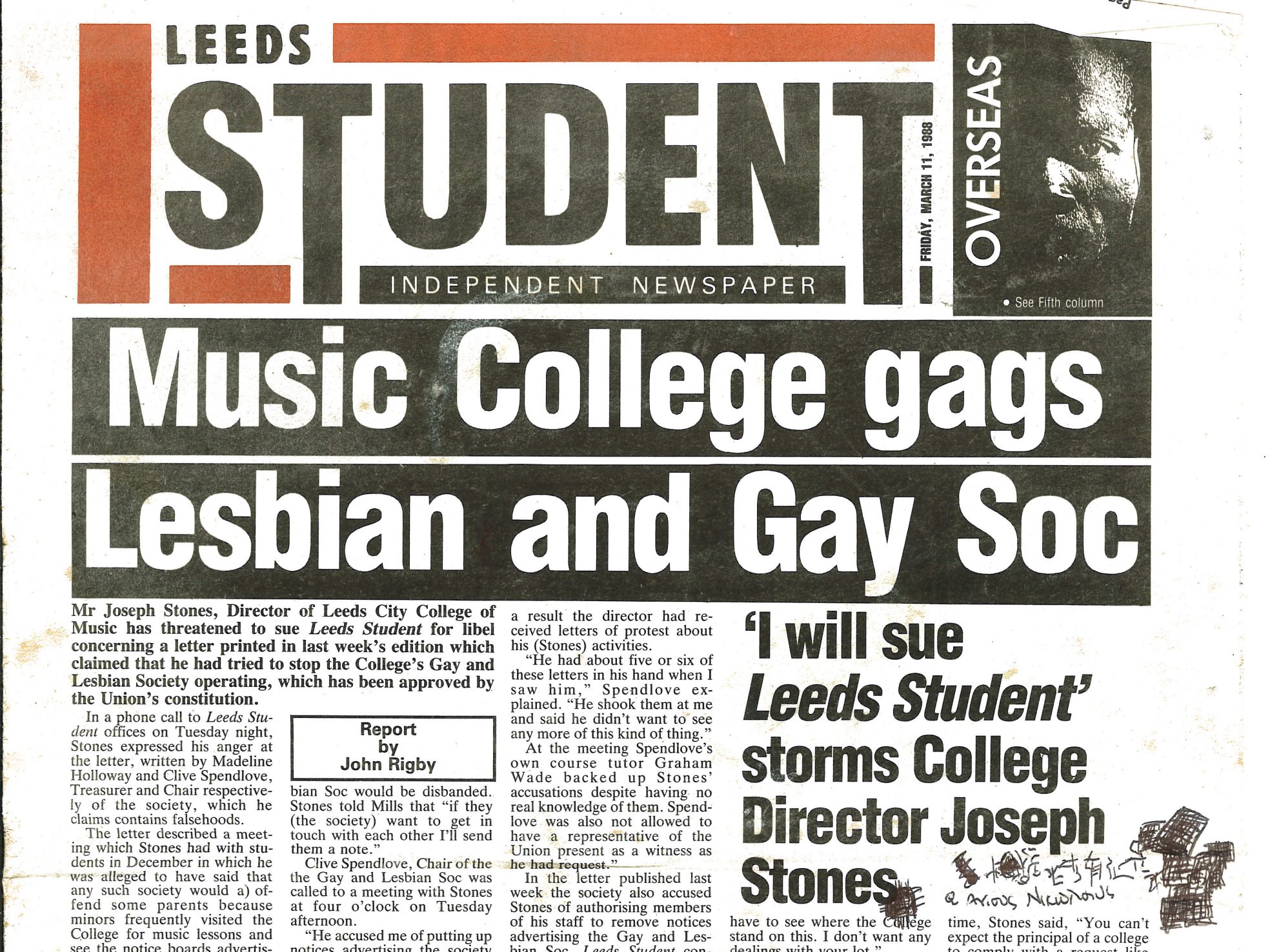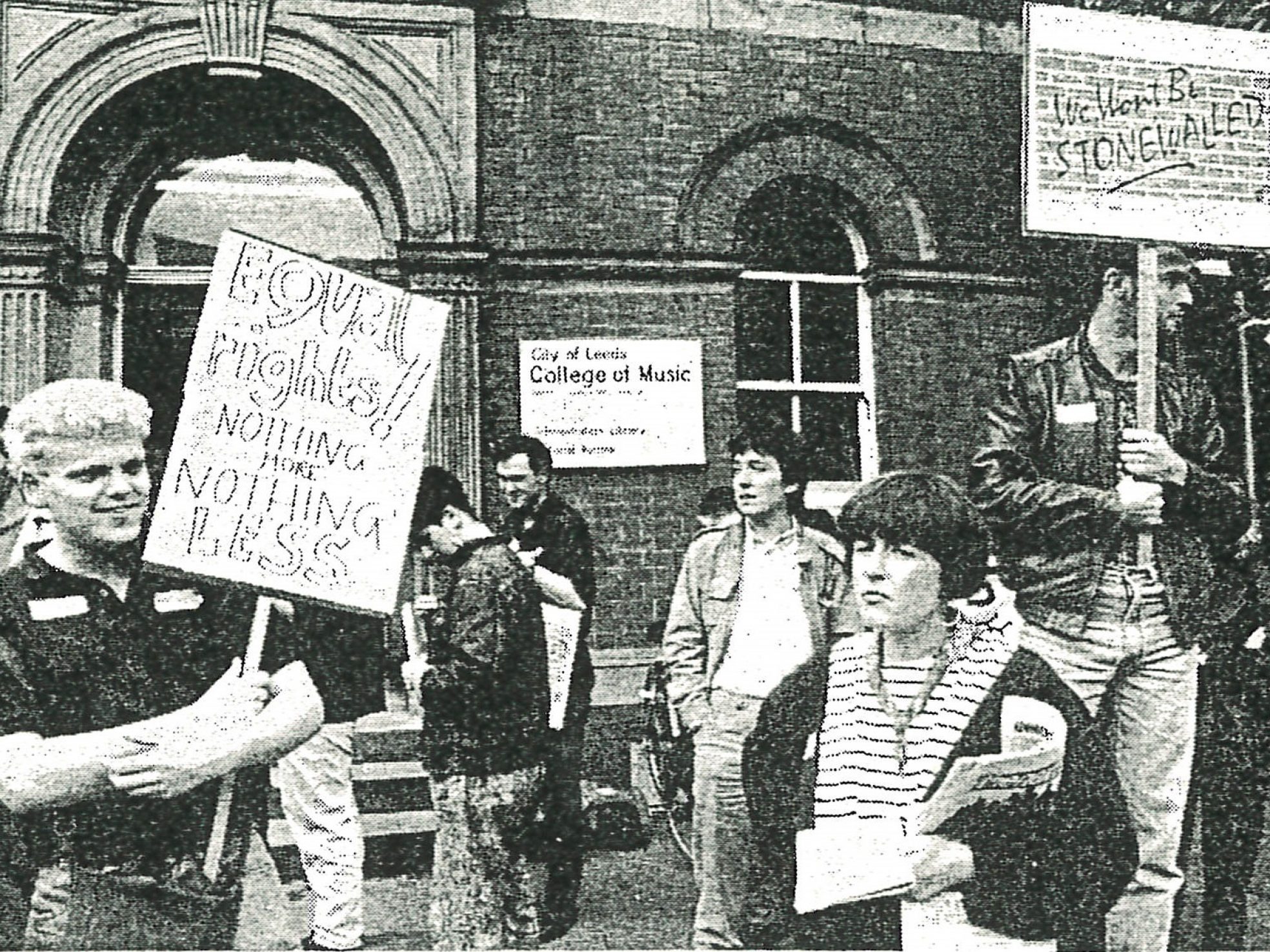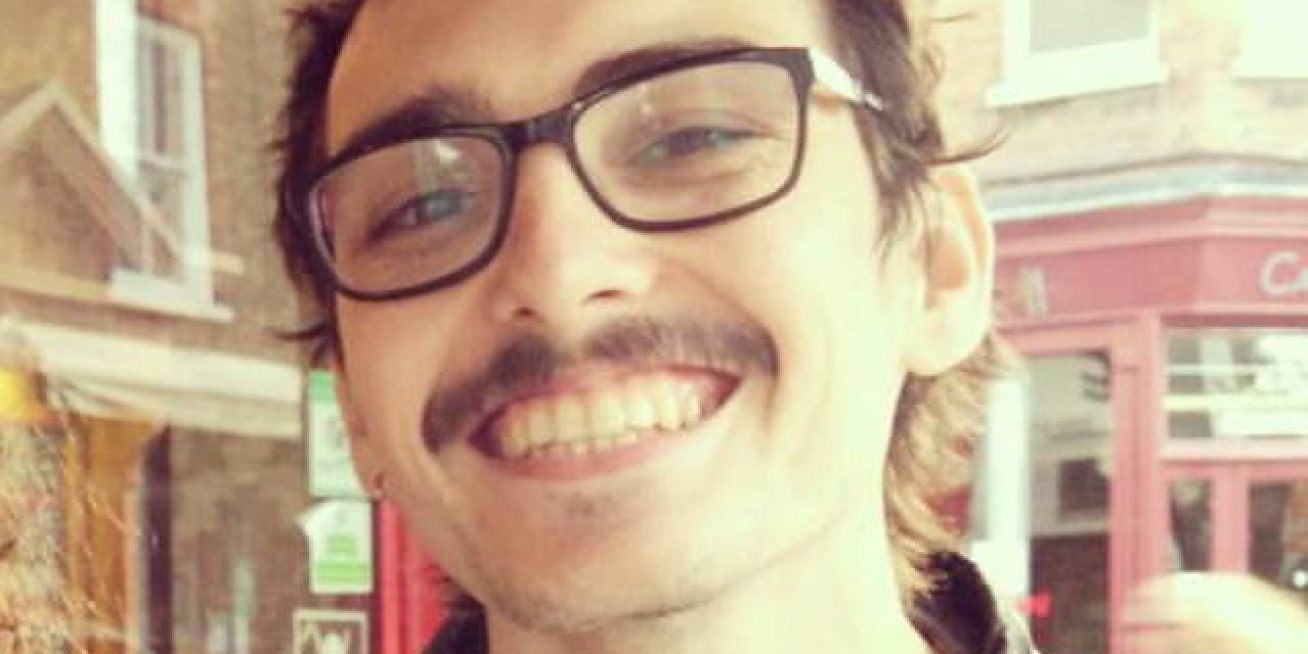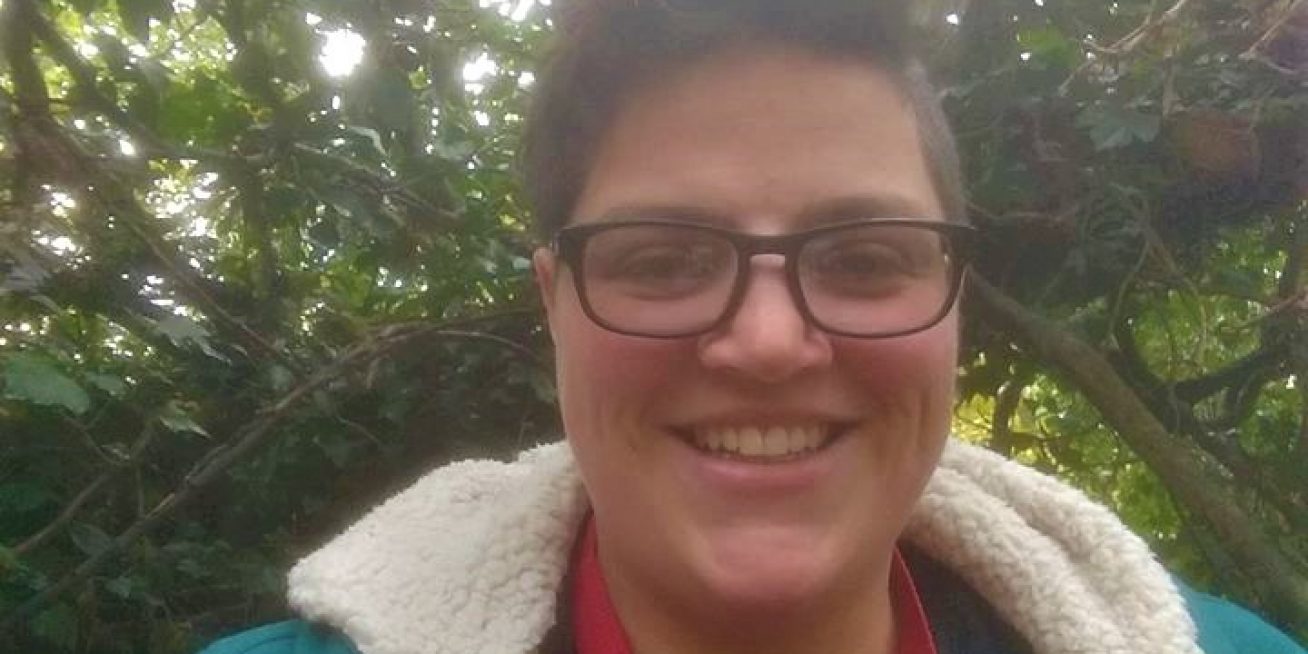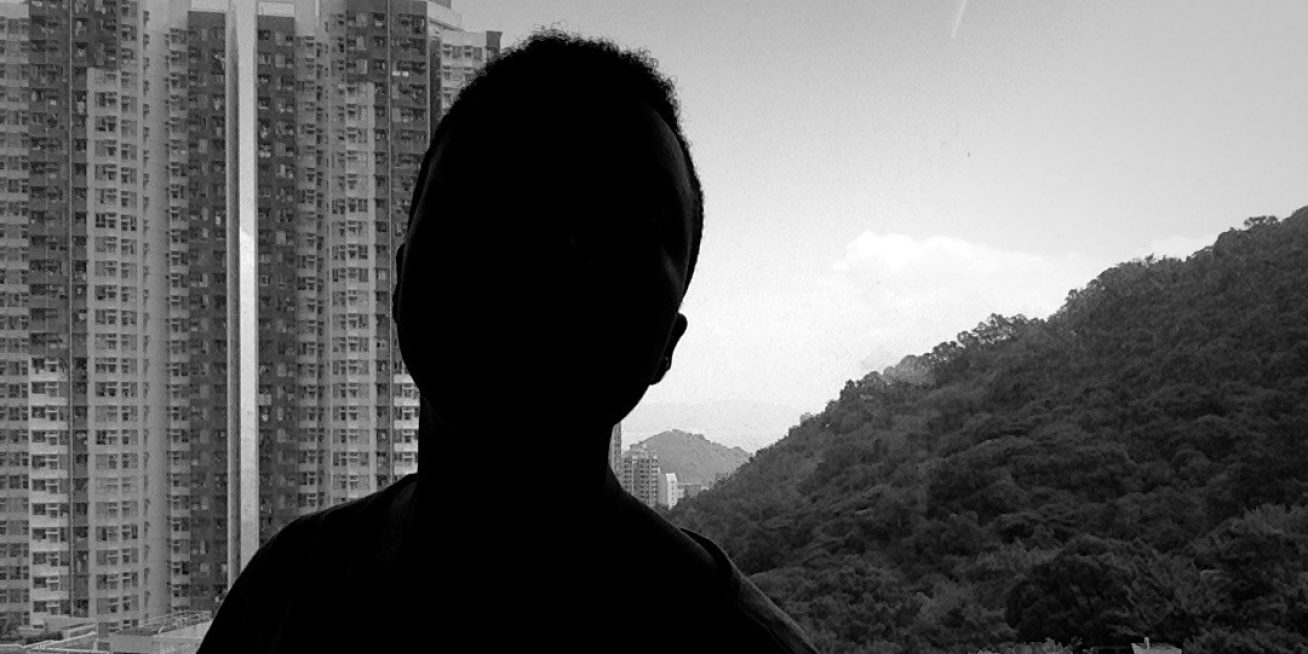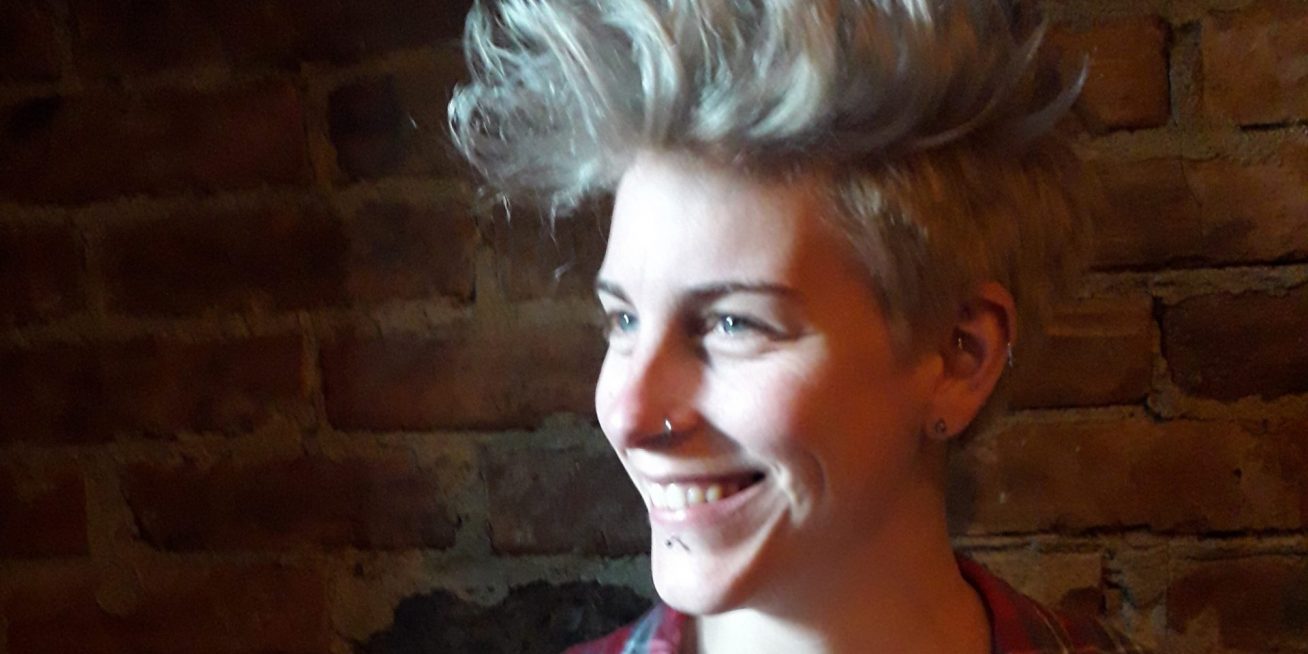The campaign for a GaySoc at Leeds College of Music
Clive recalls how he campaigned for a GaySoc at Leeds College of Music in 1986, with the support of Ian McKellen and the University of Leeds' Student Union.
Interviewer Gill also reflects on this story in her blog article, An Awe-Inspiring Campaign.
TRANSCRIPT
CLIVE: And I think it was in the second year or the third year, I can't remember, I was there for four years, a woman approached me, a student approached me in the corridor. She said, 'Do you - how do you find it here? Do you find it very homophobic?'. I said, 'Well, I haven't really, it hasn't really come up'. But she said, 'Well, I do, I really do'. So, I got talking to her. I said, 'Well, we could set up a GaySoc in the Student Union'. So she said, 'OK, let's do that'. So we did - or we tried to. And, you know, we put some notices round about, on the noticeboards and so on, and they got removed, these notices. And, erm… eventually it became clear that the Director of the College of Music was against it. And, a period of about 15 months, a really slow process of trying to get to the bottom of what, what people had against it, and how to deal with it. Although the process towards the end became very uncomfortable, very bloody. And I was trying to study. And she left college after so long, coz it was so uncomfortable, this lesbian student.INTERVIEWER: Did you manage to recruit any other members?
CLIVE: Actually, I thought, with it being an arts college, a music college, that there'd be loads of people. People were really nervous to be involved. I mean, for a - well, the Director made it known, and some of the teachers made it known, how opposed they were to it. In fact, ultimately the Director called a meeting of all the students of the college, into what was called the gallery, what is now part of the… Leeds Museum, all the student body together, and said why he wasn't going to allow this, why he wasn't allowing this... society to operate on college premises. And, he said, things like, there'd been incidents in the past, goings-on that had caused a lot of problems, that there are diseases going round, you know, it was the late 80s. And of course, Section 28. I don't think he mentioned Section 28, but of course, that was very much around, on the cards, and this was, this was a local authority-funded college. And we've got young people coming into this college, and - oh, and I remember him saying, ‘I don't want their young minds being swayed by older students’. And I was a mature student, and this woman was a mature student.
And, so there was a long… We were getting hate mail, anonymous hate mail, there was a petition round all the staff, supporting the college Director's decision. And to my knowledge, only two staff members actually supported us, one of whom was my course director, [name removed], who was a terrific support. And, oh, and we tried approaching the college governors and I remember some of the responses were positive, but some were incredibly negative, including from a local elderly Quaker. I was very disappointed about that one because I'd found the Quakers generally to be very, sort of, positive towards - you know, respectful of people's differences and so on.
So, we got the coll - we got the, a lot of help from Leeds University Union. Eventually, one of their officers said, 'I have contact with Ian McKellen.' Sir - well I don't know if he was Sir Ian McKellen then. But he'd by then got this sort of reputation for being out, and being useful to the community and so on. So, she said, 'Can I send him a - will you send him a dossier of what's happened so far?' So, I did and he phoned me up and said, 'I've read this, and I totally support what you're doing, I think you've done everything right, and I'd like to come up to Leeds and speak on your behalf at a public meeting.'
So, he did, actually in the College of Music. The same, what's it called, the gallery, where the Director had held this incredibly negative meeting. So he came, and some press came. And we invited the College of Music staff, and only one of them came. And - there might have been two, but I mean, you know, out of, oh god knows, a hundred or something. The Director certainly didn't appear! And, hardly any students from the College of Music appeared. They were frightened to be associated any, with anything that the Director was against, that's my view, including the gay ones. In fact, in fact, after I left the College of Music, one of the students, who had been, who had accompanied me many times, at my performances, she, she, after I left, after we left, she came to visit me and she said, 'Well, actually, I'm gay'. [Laughs] And she'd kept quiet about it the whole time. This was somebody I worked with, professionally, at the College of Music. And she and a male student, who I thought were boy- and girlfriend, were actually both gay and they were pretending, because of fear of homophobia.
Anyway, Ian McKellen came up to speak and by this time, we'd gone to take legal advice, and we went to [name removed] and - by this time, just before Ian McKellen came up, to speak, we were told that the legal department at the council had instructed the college, the College of Music Director, that he had to back down. And he had to let us operate on college premises and so on. So that took 15 months, and it was very, it was very difficult, very uncomfortable and, as I say, I was trying to do my studies at the same time. And the lesbian that I worked with left, she, she left before the end of the course, she'd certainly had enough, she left before me. And I was exhausted at the end of it, emotionally actually, with the stress of it. So I never actually did anything after that apart from study.
